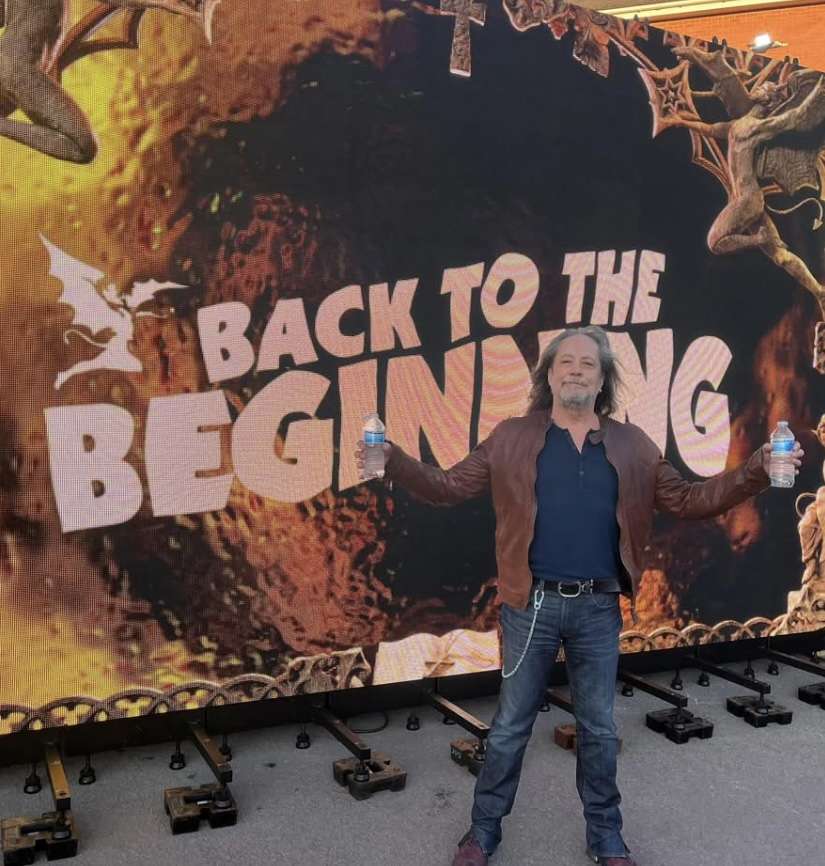
The 1970s is often remembered as a golden era for guitar heroes. Names like Jimmy Page, Eric Clapton, Ace Frehley, Michael Schenker, and Eddie Van Halen dominated stages and shaped the sound of rock music. With such legendary figures taking the spotlight, many equally gifted musicians slipped under the radar, never receiving the same level of recognition despite their extraordinary talent. For Jake E. Lee, one of the most respected guitarists of the 1980s metal scene, there was one such overlooked figure who left a lasting impression on him—Tommy Bolin.
During a recent interview with *Tone Talk*, Lee revealed that Bolin was his favorite guitarist of the 1970s, describing him as a “huge influence” on his own playing. “Tommy Bolin, he’s my favorite guitar player in the ’70s,” Lee said. “Huge influence. I did see him live. Trying to remember, I think it was with Jeff Beck. I think they did a tour where they were sort of co-headlining. This would have been the late ’70s. I know I’ve seen him twice, and I saw Jeff Beck twice, so I might mix it up a little.”
Bolin, who tragically passed away at the young age of 26 in 1976, is perhaps best known for his stints with the James Gang and Deep Purple. But beyond his work in major bands, Bolin carved out an eclectic career as both a solo artist and session guitarist, weaving together elements of hard rock, jazz, funk, and fusion. His solo work, particularly the album *Teaser*, showcased his adventurous spirit and willingness to push musical boundaries, and it was this willingness to experiment that captivated young guitarists like Jake E. Lee.
Lee went on to reflect more deeply on his live experiences watching Bolin. The memory, however, is bittersweet. “Tommy Bolin, I know last time I saw him, it was off the *Teaser* album,” Lee recalled. “I was a huge fan, and I saw him, and he was so fucked up on stage. He died a couple months after that. OD’d. He was so fucked up on stage. He still played great, but he would talk, and he’s slurring, mumbling, and you could see in his eyes he was fucked up.”
That performance left a complex impression on Lee. On one hand, he witnessed a guitar hero who could still command the stage musically despite personal struggles. On the other, it was clear to him that Bolin was battling demons that were consuming him. In fact, Lee admitted he turned down the chance to meet Bolin in person because of the state he was in. “I remember the girl I knew that worked at this place where he was playing said, ‘You’re a huge Tommy fan. Do you want to meet him?’ I was like, ‘He is so fucked up. I’d rather imagine what it’d be like meeting him than to meet him like that because he was so fucked up.’ And then he died, and I never met him.”
The regret in that story is palpable. Lee, like so many fans, had admired Bolin’s artistry from a distance but never got to share a personal moment with him before his untimely death. Bolin’s life was cut short, but his musical legacy has continued to grow among guitar aficionados who recognize his brilliance.
One of Bolin’s most enduring contributions to music came through his work on Billy Cobham’s groundbreaking 1973 jazz-fusion record *Spectrum*. Widely regarded as one of the most influential albums in fusion history, *Spectrum* helped inspire Jeff Beck to explore a similar path on his own solo records, *Blow by Blow* and *Wired*. That connection, where Bolin’s playing indirectly shaped one of the most celebrated guitar albums of all time, speaks volumes about his impact.
Jake E. Lee’s acknowledgment of Bolin as his favorite guitarist of the ’70s shines a spotlight on a musician who may not be as well known as some of his contemporaries but whose influence resonates far beyond his brief career. For Lee, Bolin represented more than just technical prowess. He embodied fearlessness, versatility, and raw emotion—qualities Lee himself brought into his own playing with Ozzy Osbourne and his later projects like Badlands.
Reflecting on Bolin’s career is also a reminder of the darker side of rock stardom in the 1970s, when substance abuse claimed the lives of many talented musicians far too soon. While Bolin’s brilliance was undeniable, his story is tinged with tragedy. Jake E. Lee’s words highlight both the admiration he felt for his hero and the sadness of witnessing a great talent unravel.
Today, Tommy Bolin is still celebrated by devoted fans and musicians who recognize his genius. Tribute concerts, reissues of his solo albums, and growing acknowledgment from younger generations of guitarists ensure that his contributions will not be forgotten. And thanks to musicians like Jake E. Lee openly sharing their admiration, Bolin’s legacy continues to gain the respect it deserves in the broader history of rock guitar.
For Jake E. Lee, the memory of seeing Bolin live, even under tragic circumstances, remains a touchstone in his life. It serves as a reminder that behind every legendary riff or solo lies a human being with struggles, triumphs, and vulnerabilities. More than four decades later, Bolin’s music still inspires, and through the words of admirers like Lee, his name continues to echo as one of the true unsung heroes of the 1970s guitar era.
Leave a Reply